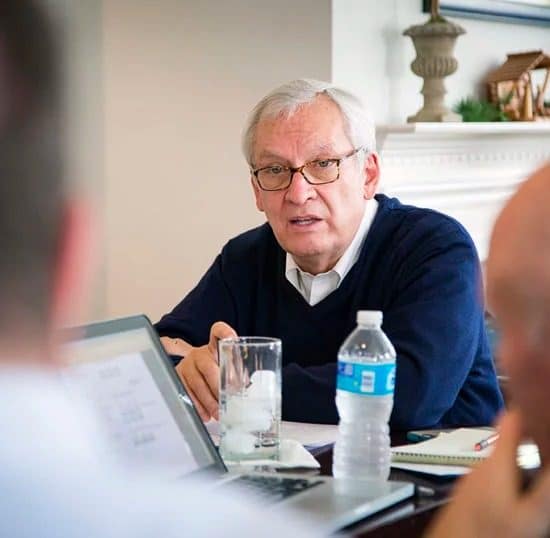By Vicki Brown
Word&Way Correspondent
Even if you are less than five years away from retirement, you can plan for your financial future. Jim Cook, a Kansas-based certified financial planner with the Ministers and Missionaries Benefit Board, offers a few tips for various life stages.
• The 20-somethings — Cook encourages individuals to start contributing to a retirement plan as early as they can, even if they can only afford to invest a minimal amount.
“The biggest mistake is that they look at the amount and think it is too small,” he said. That mindset often discourages them from putting aside any money at all. But while an individual is young “time is almost more important than the amount” invested, he added.
Cook encourages young investors to increase the percentage of contributions each time they get a raise until they are placing 10-15 percent of their salary in a retirement plan.
• The 50-somethings — Cook emphasized that even at 50, an individual can make a significant difference in his or her financial outcome at retirement, even if he or she has not participated in a plan.
“If they haven’t started, they need to reduce spending and save at a level of at least 15 percent and consider extending their work-life beyond [age] 65,” he said.
MMBB advisors anticipate more and more individuals will work later in life. Sometimes called partial retirement, extended work-life moves people slowly from full-time employment to retirement over a number of years.
After age 60, individuals should develop “multi-sourcing income,” Cook explained. For example, a pastor might step down from a full-time to part-time ministry post and supplement his or her income with another part-time ministry or secular position.
• Those near retirement — Individuals within a few years of their retirement goal need to examine where their assets are allocated and make certain they are not overly invested in stocks, Cook said. By that point, they should have more money invested in fixed funds.
But in the face of the current economic upheaval, “it is not a good time to move out your investments now, if you haven’t already,” he added. “You have to stick it out at this point.”
Cook reminds clients that even at retirement age, “your money still has to last for your lifetime.”
“If you make it to 65, you are likely to make it to 85. You still have 20 years, so you need to retain 40 to 60 percent of your investments in stocks for the long term to lower your risk of losing money to inflation,” he said.
Regardless of age, individuals must base their financial decisions on reality, not on wishful thinking. “Look at your current assets and look at your budget,” Cook said. “If you’re not comfortable looking at the figures, it’s time to seek help from a CFP to help you discover what you need to do in order to do what you want to do in retirement.”
This article is part of the "Planning Ahead" special section in the October 30, 2008 issue of Word&Way.




